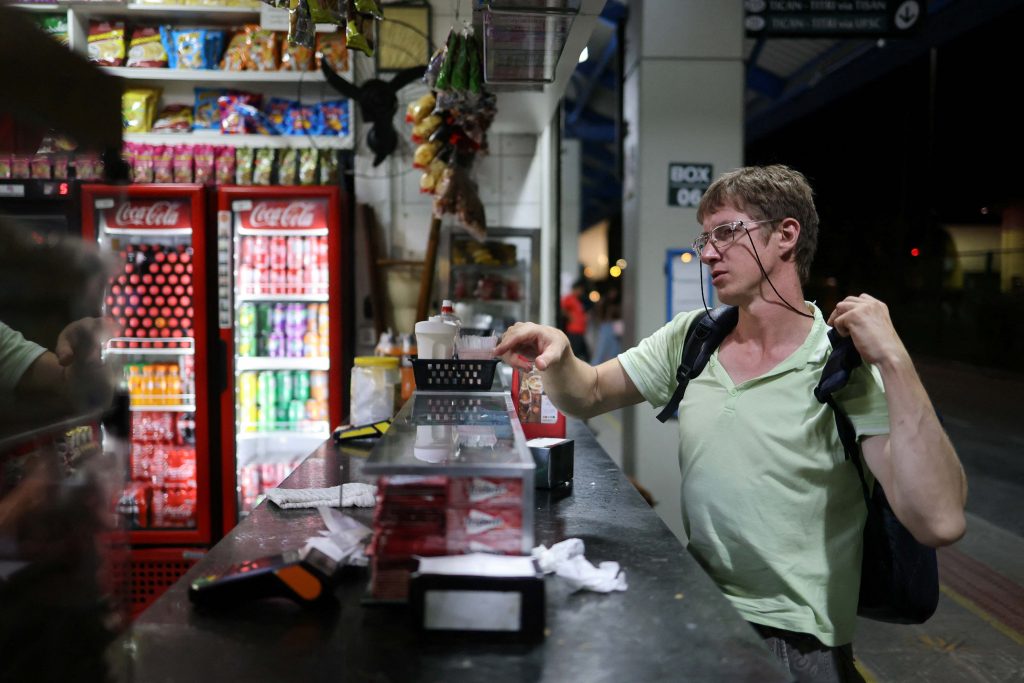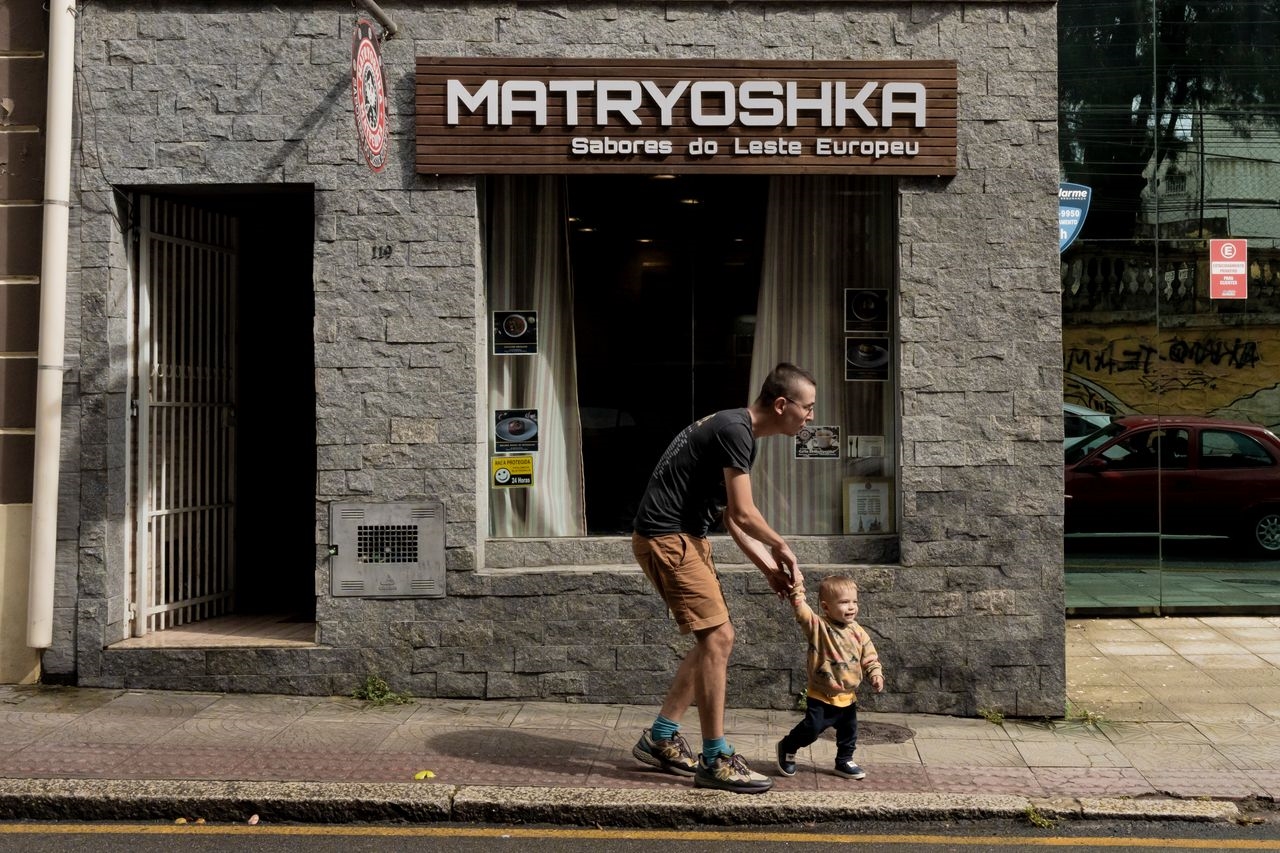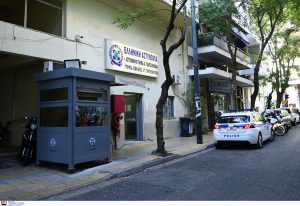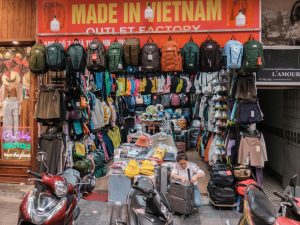BUENOS AIRES—At Bucarest Gastro Bar, the waiters speak Russian as customers forgo the local rib-eye for skewered meat called shashlik .
Russians who left their homeland since their country invaded Ukraine rock out to a Russian band. Others drink vodka and smoke tobacco in a hookah, popular in their homeland.
“Here, my children are free. I’m free,” said the bar’s co-owner, Dmitrii Prianikov, in halting Spanish. The 42-year-old has an all too familiar tale to tell: He arrived in Argentina two years ago with his wife and children from a Russian region that borders Ukraine—and is frequently hit by drone attacks .
With Russia’s economy isolated and Vladimir Putin ’s authoritarian regime seeking conscripts , hundreds of thousands of Russians have fled since Russia invaded Ukraine in February 2022. They first went to Armenia, Turkey and nearby countries, nations where the long hand of Moscow’s security services felt close.
Now, many of those immigrants are taking advantage of relaxed entry rules and beneficial immigration laws and settling in Argentina and Brazil, mostly in the Argentine capital and the Brazilian coastal city of Florianópolis, an idyllic collection of islands covered in lush forest in the country’s far south. Both cities, located thousands of miles from Russia, have long been magnets for European immigrants fleeing conflict and poverty.
In Argentina, the center of the new Little Russia community is spread across Palermo, Belgrano and other neighborhoods of Buenos Aires known for their hip restaurants and youthful residents. The newcomers have opened Russian-speaking beauty salons, restaurants, daycare centers and small theaters. Others are digital nomads, working in Russian and paid in foreign currencies or crypto.
Florianópolis is partly made up of a large island featuring caipirinha -soaked lounges and fashionable beach restaurants. Brazil’s neutral stance on the Ukraine invasion, coupled with Brazilians’ noticeable lack of interest in the war, has made it easier to fit in.
“People have just been so kind, that’s the best part,” said Alexey Yushko, a website developer and avid surfer from Moscow now in Florianópolis. Some of Russia’s best surfers were among the first from their country to arrive in the Brazilian city of 500,000, he said.
About 60,000 Russian citizens entered Brazil between the beginning of March 2022 and the end of last year, according to government data. They invested more than $300 million, mainly in property, according to estimates based on official data by Hayman-Woodward, a global advisory firm on immigration.
Some 36,000 Ukrainians have also entered Brazil during the same period, many settling in the south.

Ivan Ivanov, 34, buys food on his way back home from work, where he has been living for eight months after leaving his hometown of Tomsk in Russia, in Florianopolis, Brazil, February 23, 2024. REUTERS/Anderson Coelho
The new arrivals from Russia say they are attracted to the city’s cooler climes and a crime rate lower than that of São Paulo and Rio de Janeiro. Brazil’s southern states are already home to descendants of the many Russian Jews and those with German heritage who immigrated after the past century’s two world wars.
“They’re looking for somewhere that has some similarities with where they are from,” said Leonardo Freitas, Hayman-Woodward’s chief executive, explaining why most arrivals had picked Brazil’s south, now in the midst of winter.
The first wave of Russians included pregnant women attracted to Argentina because it provides immediate citizenship to newborns and temporary residency and work permits for their parents, putting them on a fast track to citizenship.
Brazil also provides perks for new parents, allowing immigrants to apply for citizenship after giving birth in the country, providing them with a passport that allows them to bypass growing travel restrictions on Russians. The European Union has restricted Russian citizens from visiting the 27-nation bloc by toughening visa requirements. But Argentines and Brazilians enter Europe visa-free.
The ease of obtaining citizenship in the South American countries has caught the attention of Western officials after Russian spies were found creating fake identities in Argentina to conduct espionage in Europe.
Brazil’s Justice Ministry said the right to citizenship in these cases was guaranteed by the country’s constitution, adding that Brazil always strives to integrate migrants. Argentina’s Foreign Ministry didn’t respond to a request for comment.
In Argentina, more than 75,000 Russians have entered since the war began, government migration data shows. During the same period, about 11,000 Ukrainians have also entered Argentina, which has a large Ukrainian community with roots dating back to the 19th century. That community has sent medicine, clothing and other aid to Ukraine since the war began.
In Buenos Aires, recent Russian arrivals have little contact with the established Ukrainian community, said Jorge Danylyszyn, the head of a Ukrainian cultural association in Argentina. While some have joined antiwar protests in front of the Russian Embassy, most of the immigrants don’t want to get involved, he said.
“They stop in front of our organization’s doorway, read the protest signs that we put up, and keep on walking,” he said. Still, there isn’t tension between the groups, he said. “The conflict is in Ukraine, not in Argentina.”

Russians Ilia Gafarov and his wife Nadia Gafarova share a laugh at the rooftop of their “banya”, a traditional Russian sauna they are building together, after moving to Argentina 9 months ago, as part of a wave of migration since the 2022 invasion of Ukraine, in Buenos Aires, Argentina February 16, 2024. REUTERS/Agustin
Grigorii Mikhailov learned his wife was pregnant with their first child two days before hostilities. “When the war broke out we were in shock,” he said. “We knew we had to leave Russia. I was afraid I would be called up or would end up in prison.”
Mikhailov explained how the couple grabbed their Welsh corgi, Fred, and fled to Thailand to stay with friends. After struggling to get authorization to live there, a friend in Florianópolis tipped them off about Brazil’s generous immigration laws. The couple was soon on a plane to Latin America.
Ksenia Romantsova, a 28-year-old from St. Petersburg, Russia, gave birth to a baby daughter last year after moving to Buenos Aires.
She and her husband, a chef, opened a restaurant called Musgo that uses ingredients from Patagonia in Scandinavian- and Asian-inspired dishes. They are in the process of getting Argentine citizenship.
“We feel very comfortable here,” said Romantsova.
Both Brazil and Argentina are welcoming to same-sex couples. Argentina was the first Latin American country to recognize same-sex marriage. In Russia, the Supreme Court has deemed the international LGBT movement as extremist and people are fined for displaying the rainbow flag.
“It was a culture shock to see same-sex couples holding hands in public,” said Baghir Kutlugildin, a 27-year-old from Moscow who moved to Argentina with his partner. As a gay man in Russia, “nobody asks you about your personal life, and you don’t tell anyone, just very close friends. But here, I can tell anyone that I have a boyfriend.”
The day after Russia invaded Ukraine, Kutlugildin withdrew his life savings. Worried about the draft, he considered disabling himself by slamming his hand in a door or breaking a leg.
Instead, Kutlugildin and his partner left for Armenia, where they spent a few months working in a hostel before moving to Buenos Aires. Before arriving in December 2022, Kutlugildin knew little about Argentina beyond its reputation as a global soccer powerhouse and the birthplace of the tango.
“I just knew it was some kind of country in South America,” he said.
Putting down roots in Argentina is a risky bet given the country’s decadeslong history of financial turmoil , including its current economic crisis . Russians have arrived as the country grapples with 272% annual inflation, one of the world’s highest, and a poverty rate that has hit 56%.
President Javier Milei , a libertarian who inherited an economy in ruin from his left-wing predecessor, has strongly supported Ukraine. One of his first meetings as head of state was with Ukrainian President Volodymyr Zelensky , who attended his December inauguration.
Russian immigrants, many of whom don’t speak Spanish, have had to quickly adapt to soaring prices. Mariya Azimova, 38, regularly checks the peso’s exchange rate against the dollar to set prices for the manicures and pedicures at her beauty salon, Mint Lounge, where her six employees are all Russians.
Azimova, who arrived from Moscow with her husband and 9-year-old daughter, said her family rarely travels or buys new clothes.
“No excess,” she said. “We understand that now we need to work a lot.”
When Alexander Ivanov arrived in Argentina last year, he recalled that steak dinners were so cheap that he and his wife could eat out once a week. Now, it’s once a month.
Still, the 35-year-old Muscovite says he is happy in Buenos Aires, where his daughter was born last August.
Passionate about architecture and history, he makes a living as a tour guide, leading other Russian immigrants on walking tours through Buenos Aires, discussing the ornate, Parisian-inspired architecture. His favorites are the city’s brutalist structures, like the imposing Mariano Moreno National Library.
“I love this city,” he said. “You can’t be bored here.”
Argentina’s economic crisis provided some Russians an opportunity to buy apartments at cut-rate prices. Local real-estate agents say Russians were among the top foreign buyers last year.
Olga Ellinskaya, a 41-year-old from Sochi, bought an apartment near Buenos Aires’s famed Teatro Colón. She now lives there with her two children, mother and partner.
She left Russia after her teenage daughter was briefly detained by police, who warned Ellinskaya to stop criticizing the war on social media. She chose Argentina after reading positive reviews on social media from other Russian immigrants.
In Buenos Aires, she now runs a play center for Russian children, who on a recent day were learning to conjugate Spanish verbs.
She said: “I never wanted to leave Russia, I never wanted to live abroad, but the situation was very dangerous.”
Write to Ryan Dubé at ryan.dube@wsj.com and Samantha Pearson at samantha.pearson@wsj.com



